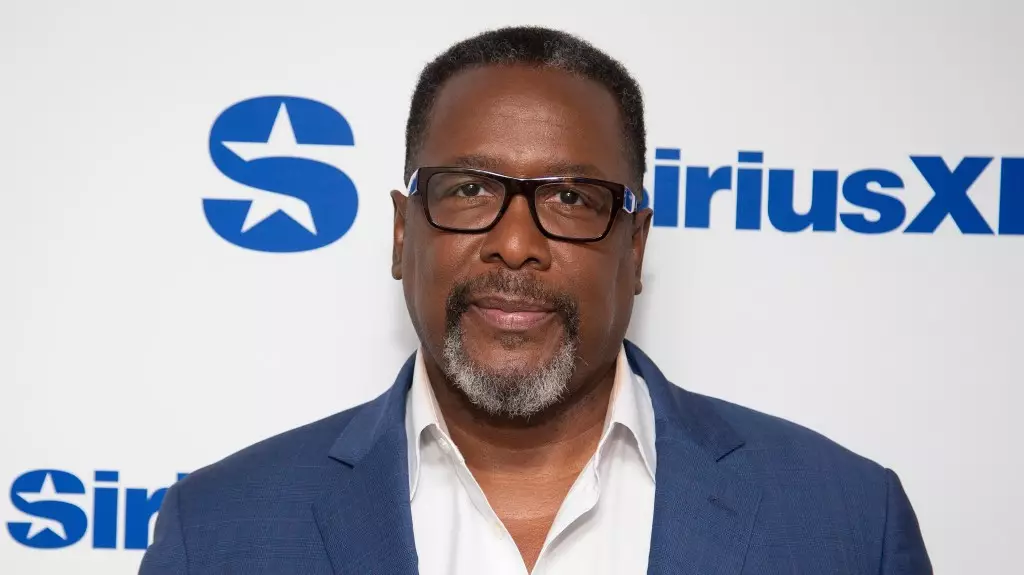The intersection of sports and celebrity often leads to compelling narratives, but not always joyful ones. Wendell Pierce, celebrated for his roles in iconic television series such as *The Wire* and *Suits*, found himself in an unfortunate predicament during a recent visit to the World Series Game 5 at Yankee Stadium. Despite proclaiming his dual allegiance to both the New York Yankees and the Los Angeles Dodgers, his experience was marred by what he described as “unruly” and “obnoxious” fans. This predicament raises palpable concerns about the increasingly toxic environment found in sports venues, overshadowing the game itself and leaving a lasting impact on both players and attendees.
Pierce’s tweets on October 30 detailed his initial enthusiasm as a spectator, seemingly eager to witness an exciting baseball matchup. He wore a Yankees hat in solidarity with the team representing the region, hoping for a thrilling showdown reminiscent of prior games. However, within hours, his excitement turned to dismay, as he became a target of hostile behavior from other fans after merely engaging in conversation with a Dodgers supporter. His chilling quote, “Unfortunately I just left the Yankees game because I was talking to a Dodgers fan and people were throwing things at me,” encapsulates a sobering reality: a sport meant to unite people was splintered by divisive fandom.
The crux of Pierce’s contention lies in the unexpected hostility that can arise in a competitive sports atmosphere. This disturbing trend is not isolated to a single game or team; rather, it reflects a broader cultural problem that affects audiences and players alike. The unwritten rules of acceptable behavior at sporting events often seem overlooked as passion morphs into aggression. The unfortunate reality is that while enjoying a game, a patron’s safety and enjoyment can hang precariously on the tolerance of fellow fans.
In highlighting the unpleasant experiences of fans like Pierce, the broader implications on sportsmanship and community spirit cannot be ignored. During Pierce’s unraveling game day, countless positive narratives could have emerged, celebrating acts of friendship and camaraderie among rival fans. Instead, his focus turned to the negative—many fans heading to the stadium seeking to engage in a unique communal celebration were instead met with hostility and disruption.
Pierce lamented that “the spirit of sports ends with the ugliness of humanity,” which starkly contrasts the thought that sports are an opportunity to witness collaboration, skill, and artistry. This sentiment resonates especially in settings like the Olympics, where respect and appreciation for competitors are fundamental. Fans should ideally foster a sense of connection, but Pierce’s account sheds light on how aggressive behavior detracts from the very essence of sports.
The role of social media in amplifying these experiences cannot be overlooked. Pierce, in sharing his disappointing experience with a broad audience on X, not only highlighted his frustration but also brought attention to the concerning trend of fan behavior among sporting events. This type of platform shifts the power dynamics, allowing individuals to speak out against a culture that often endorses aggressive behavior rather than celebrates community and sportsmanship.
As the discourse around Pierce’s experience continues, it serves as a reminder of the need for etiquette in sports fandom. Being passionate about one’s team does not excuse derogatory behavior toward others. A positive shift in sports culture would involve embracing the competition’s spirit while respecting adversaries—after all, we are all fans of the game.
In a world of escalating fan aggression, Wendell Pierce’s unfortunate exit signifies more than just an isolated experience; it serves as a crucial call for necessary reforms in sports culture. The incident elucidates the urgent need for teams and stadiums to promote accountability among fans, fostering a safe and enjoyable environment. As spectators and participants in this shared cultural phenomenon, it becomes imperative that we advocate for respect and compassion, not merely fervor and allegiance. In doing so, we can ensure that the essence of sports—unity, connection, and enjoyment—remains paramount above all else.

Leave a Reply